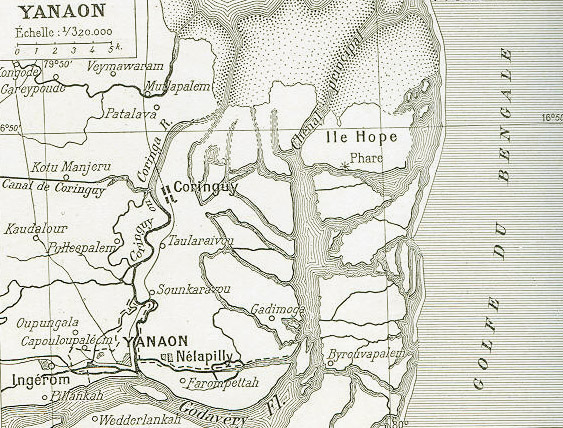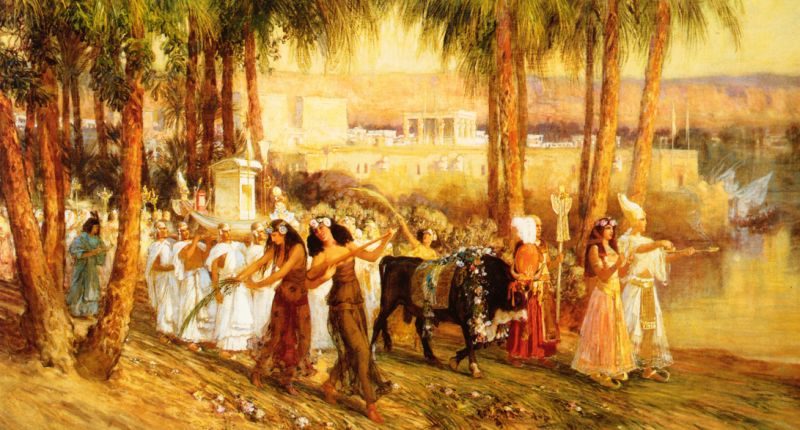|
Yanam Venkanna Babu Brahmōtsavam
Yanam Venkanna Babu Brahmōtsavām is an annual festival at Yanam Venkanna Babu Temple celebrated in the month of Kārtika (September/October), since 2003. Each day, during dusk, the Lord's chariot procession occurs on streets with different chariots.http://yanam.gov.in/yanamnews.htm Sesha Vāhanam On the first day of the festival, vāhanam of the day will be Sesha Vāhanam (శేష వాహనము), i.e., ''The Serpent Chariot''.The Sponsor of the day (ఉత్సవ నిర్వాహకులు) will be ''Sri Gurudatta Brahmana Seva Samiti''. Hamsa Vāhanam On the second day of the festival, vāhanam of the day will be Hamsa Vāhanam (హంస వాహనము), i.e., ''The Swan Chariot''. The Sponsor of the day (ఉత్సవ నిర్వాహకులు) will be ''Kapu Utsava Committee''. Hanumanta Vāhanam On the third day of the festival, vāhanam of the day will be Hanumanta Vāhanam (హనుమంత వాహనము), i.e., ''The Hanuman C ... [...More Info...] [...Related Items...] OR: [Wikipedia] [Google] [Baidu] |
Kartik (month)
Karthik or Kartik ( hi, कार्तिक, link=no, ta, கார்த்திக், link=no) may refer to: People with the given name Kartik * Kartik Aaryan (born 1990), Indian actor * Kartik Chandran, American environmental engineer * Kartik Jeshwant (born 1964), Indian cricketer * Kartik Joshi (born 1995), Indian cricketer * Kartik Oraon (1924-????), Indian politician and Adivasi Member of Parliament * Kartik Shetty (born 1987), Indian actor and director * Kartik Tyagi (born 2000), Indian cricketer Karthik * Karthik (actor) (born 1960), Indian Tamil actor, politician and singer * Karthik (singer) (born 1980), Indian singer * Karthik Ghattamneni, Indian cinematographer and film director in Telugu cinema * Karthik Jayaram, Indian actor in Kannada films * Karthik Kumar (AKA Karthi, born 1977), Indian actor * Karthik Naralasetty (born 1989), Indian businessman and entrepreneur * Karthik Netha, Indian poet and lyricist * Karthik Raj, Indian actor who works in Tamil film a ... [...More Info...] [...Related Items...] OR: [Wikipedia] [Google] [Baidu] |
Vahana
''Vahana'' ( sa, वाहन, or animal vehicle, literally "that which carries, that which pulls") denotes the being, typically an animal or mythical, a particular Hindus, Hindu God is said to use as a vehicle. In this capacity, the vahana is often called the deity's "mount". Upon the partnership between the deity and his vahana is woven much Hindu iconography, iconography and Hindu mythology, Hindu theology. Deities are often depicted riding (or simply mounted upon) the vahana. Other times, the vahana is depicted at the deity's side or symbolically represented as a divine attribute. The vahana may be considered an :wikt:accoutrement, accoutrement of the deity: though the vahana may act independently, they are still functionally emblematic or even :wikt:syntagmatic, syntagmatic of their "rider". The deity may be seen sitting or standing on the vahana. They may be sitting on a small platform, or riding on a saddle or bareback. [...More Info...] [...Related Items...] OR: [Wikipedia] [Google] [Baidu] |
Yanam Śrī Rājarājeśwara Kalyāṇōtsavam
Yanam Śrī Rājarājeśwara Kalyāṇōtsavām at Yanam is an annual festival at Yanam Sivalayam celebrated for twenty days in the month of Māgha (January/February). Kalyāṇam will be performed on Māgha Śuddha Dvādaśi i.e., on the twelfth day of the festival. Lord's holy consort is Goddess Śrī Rājarājeśwari Ammavāru. History Lord Śrī Rājarājeśwara Temple is at Yanam on the bank of Atreya Godavari (also known as Corangi river). This temple was built by the Chalukya kings of Rajamahendravaram (Rajahmundry) in the 15th century. The sculptures of those period are present in this temple. Though Kalyāṇōtsavām and Rathōstavam has been performed since old days. It is carried by devotees singing slogans and bhajans. The Kalyāṇōtsavam Festival is celebrated in the month of Māgha (January/February) every year by the people of Yanam. The festival commences on ''Māgha Śuddha Pāḍyami'', Lord Śrī Rājarājeśwara will be made bridegroom and then a proc ... [...More Info...] [...Related Items...] OR: [Wikipedia] [Google] [Baidu] |
Yanam Venkanna Babu Kalyāṇōtsavam
Venkanna Babu Kalyāṇōtsavām at Yanam is an annual festival at Yanam Venkanna Babu Temple celebrated for twenty four days in the month of Phālguṇa (February/March). The celebration attracts pilgrims and tourists from many parts of around Yanam. Kalyāṇam will be performed on Phālguṇa Śuddha Dvādaśi i.e., on the twelfth day of the festival. History Lord Venkateswara residing at Yanam is called by different names ''Meesaala Venkanna, Chalidikoodu Venkanna, Venkanna Babu''. The speciality of the Temple is that the Swamy Idol has big moustaches like Lord Sathyanarayana Swamy of Annavaram. This temple was built by the Chalukya kings of Rajamahendravaram (Rajahmundry) in the 15th century. The sculptures of those period are present in this temple. Though Kalyāṇōtsavām has been performed since old days and Rathotsavam started some 150 years ago with the original Ratha that was sponsored by ''Kasireddy family''. The New Ratham was built in 1952 by the then Committee u ... [...More Info...] [...Related Items...] OR: [Wikipedia] [Google] [Baidu] |
Yanam
Yanam (Telugu: ''యానాం'') is a town located in the Yanam district in Puducherry. It has a population of 35,000 and is entirely surrounded by Andhra Pradesh. It was formerly a French colony for nearly 200 years, and, though united with India in 1954, is still sometimes known as "French Yanam". It possesses a blend of French culture and the Telugu culture, nicknamed '' Frelugu''. During French rule, the Tuesday market (''Marché du mardi'' or ''Mangalavaram Santa'') at Yanam was popular among the Telugu people in the Madras Presidency, who visited Yanam to buy foreign and smuggled goods during Yanam People's Festival held in January. After implementation of the Child Marriage Restraint Act, 1929 in British India, Telugu people often traveled to Yanam to conduct child marriages, which remained legal under the French administration. History There was a rumour among some natives that Yanaon was a Dutch India, Dutch colony prior to French takeover in the 1720s but there ... [...More Info...] [...Related Items...] OR: [Wikipedia] [Google] [Baidu] |
Hindu Festivals
Across the globe, Hindus celebrate a diverse number of festivals and celebrations, typically marking events from ancient Indian, ancient India and often coinciding with seasonal changes. These celebrations take place either on a fixed annual date on the solar calendar, or on a specific day of the lunisolar calendar. There is some regional variation with the observance of the festivals, and numerous festivals that are primarily celebrated by specific sects or in certain regions of the Indian subcontinent. Terminology Utsava ''Utsava'' is the Sanskrit word for festivals. The Sanskrit word ''Utsava'' comes from the word "''ut''" meaning "removal" and "''sava''" which means "worldly sorrows" or "grief". Observance periods (''tithi'') Hindu calendar dates are usually prescribed according to a lunisolar calendar. In Vedic timekeeping, a ''māsa'' is a lunar month, a ''pakṣa'' is a lunar fortnight and a tithi, ''tithi'' is a lunar day. Two definitions of the lunar month prevail: Hi ... [...More Info...] [...Related Items...] OR: [Wikipedia] [Google] [Baidu] |
Festivals In Andhra Pradesh
A festival is an event ordinarily celebrated by a community and centering on some characteristic aspect or aspects of that community and its religion or cultures. It is often marked as a local or national holiday, mela, or eid. A festival constitutes typical cases of glocalization, as well as the high culture-low culture interrelationship. Next to religion and folklore, a significant origin is agricultural. Food is such a vital resource that many festivals are associated with harvest time. Religious commemoration and thanksgiving for good harvests are blended in events that take place in autumn, such as Halloween in the northern hemisphere and Easter in the southern. Festivals often serve to fulfill specific communal purposes, especially in regard to commemoration or thanking to the gods, goddesses or saints: they are called patronal festivals. They may also provide entertainment, which was particularly important to local communities before the advent of mass-produced ... [...More Info...] [...Related Items...] OR: [Wikipedia] [Google] [Baidu] |
Festivals In Puducherry
A festival is an event ordinarily celebrated by a community and centering on some characteristic aspect or aspects of that community and its religion or cultures. It is often marked as a local or national holiday, mela, or eid. A festival constitutes typical cases of glocalization, as well as the high culture-low culture interrelationship. Next to religion and folklore, a significant origin is agricultural. Food is such a vital resource that many festivals are associated with harvest time. Religious commemoration and thanksgiving for good harvests are blended in events that take place in autumn, such as Halloween in the northern hemisphere and Easter in the southern. Festivals often serve to fulfill specific communal purposes, especially in regard to commemoration or thanking to the gods, goddesses or saints: they are called patronal festivals. They may also provide entertainment, which was particularly important to local communities before the advent of mass-produced entert ... [...More Info...] [...Related Items...] OR: [Wikipedia] [Google] [Baidu] |




